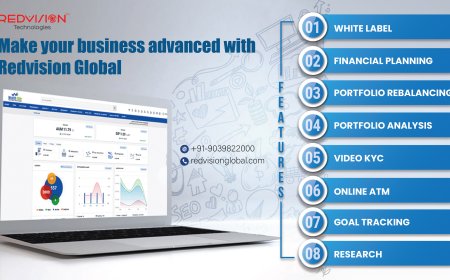Cross-Border Mergers and Acquisitions: Tax Advisory Framework
Comprehensive tax advisory framework for cross-border mergers and acquisitions, ensuring compliance, risk mitigation, and tax-efficient deal structuring in Saudi Arabia and international markets.

As globalization intensifies and businesses expand across borders,cross-border mergers and acquisitions (M&A) have become key instruments for growth, diversification, and strategic positioning. Yet, with such international transactions comes a complex web of tax implications that can significantly impact deal value and success. Thats why developing a robust tax advisory framework is essential and why the role of the tax consultant has never been more critical.
This article explores the vital components of a tax advisory framework in cross-border M&A deals and how tax consultants help corporations navigate legal structures, mitigate risks, and optimize post-deal integration.
The Growing Complexity of Cross-Border M&A
M&A activity across borders is not just about combining companies it's about aligning legal jurisdictions, tax systems, regulatory standards, and financial structures. Each country involved in a deal brings its own rules on:
-
Corporate income tax
-
Withholding tax
-
Transfer pricing
-
Indirect taxes (VAT, GST)
-
Capital gains tax
-
Double taxation treaties (DTTs)
Failing to anticipate tax exposures in any of these areas can result in deal delays, increased liabilities, or even post-merger disputes. Hence, early and continuous tax advisory is indispensable.
Role of the Tax Consultant in Cross-Border Deals
A tax consultant is not just a compliance specialist they are a strategic partner in M&A planning. Their role typically includes:
-
Tax Due Diligence
Investigating the target company's tax history, compliance status, and potential liabilities (e.g., unpaid taxes, litigation risks).
-
Structuring the Deal
Advising on the optimal legal and tax structure share purchase vs. asset purchase, use of holding companies, choice of jurisdiction.
-
Transaction Cost Management
Identifying ways to reduce transaction costs such as stamp duties, VAT, and advisory fees through intelligent structuring.
-
Treaty Analysis
Applying double tax treaties to reduce withholding taxes and prevent double taxation of income streams.
-
Post-Merger Integration (PMI)
Supporting the consolidation of tax functions, alignment of reporting standards, and transfer pricing adjustments.
Key Elements of a Tax Advisory Framework
A tax advisory framework provides a systematic approach to managing tax aspects throughout the M&A lifecycle. The framework typically includes the following five components:
1. Pre-Deal Tax Planning
This is the phase where a tax consultant conducts scenario planning and feasibility assessments to identify:
-
Optimal jurisdictions for the acquiring entity or SPV (Special Purpose Vehicle)
-
Regulatory restrictions on foreign ownership
-
Tax-efficient financing options (debt vs. equity)
-
Impact of controlled foreign company (CFC) rules
Proper pre-deal planning can reduce overall tax burden and ensure compliance from day one.
2. Tax Due Diligence
Tax due diligence identifies historical risks and future exposures. A tax consultant will review:
-
Tax returns and audit history
-
Tax credits and carryforwards
-
Employee compensation and benefits taxation
-
Customs and indirect taxes
This process helps buyers price risk appropriately and include necessary indemnity clauses in sale-purchase agreements (SPAs).
3. Transaction Structuring
This is where tax consultants design a structure that minimizes overall tax leakage. They may advise on:
-
Using intermediary holding companies in low-tax jurisdictions
-
Leveraging DTTs for dividend, interest, and royalty payments
-
Using hybrid instruments for tax optimization
-
Selecting between share and asset deals based on capital gains treatment
Proper structuring can make or break the financial attractiveness of a deal.
4. Regulatory Compliance and Reporting
In cross-border deals, compliance is complex due to multiple jurisdictions. A tax consultant ensures:
-
Transfer pricing documentation is in place
-
Country-by-country (CbC) reporting is aligned
-
Anti-avoidance rules are not breached
-
Disclosures are accurate in all affected territories
They also coordinate with local advisors to meet statutory deadlines.
5. Post-Deal Integration and Optimization
After the deal closes, tax consultants play a key role in:
-
Consolidating accounting systems and reporting lines
-
Restructuring intercompany transactions
-
Harmonizing payroll and employee tax compliance
-
Planning for group tax relief and consolidated returns
This stage ensures the new entity maximizes synergies and avoids hidden tax inefficiencies.
Special Considerations in the Middle East
In regions like the GCC, where tax systems are evolving, the tax consultants role in cross-border deals is even more nuanced:
-
Saudi Arabia: Zakat vs. corporate income tax must be considered based on ownership structure.
-
UAE: The new corporate tax regime (effective 2023) requires updated tax structuring strategies.
-
Qatar: Withholding tax and foreign business restrictions can complicate inbound M&A.
Tax consultants familiar with local and international frameworks ensure smooth navigation through regional complexities.
Common Pitfalls in Cross-Border M&A Tax Planning
Even experienced dealmakers can fall into common traps without proper tax guidance. These include:
-
Ignoring Local Tax Rules: Over-relying on treaty benefits without considering local anti-abuse laws.
-
Underestimating Indirect Taxes: Failing to account for VAT, customs duties, and local levies during asset transfers.
-
Poor Integration Planning: Overlooking post-deal compliance costs and system misalignments.
-
Mispricing Risks: Inadequate due diligence can result in unexpected liabilities that affect ROI.
A tax consultant mitigates these risks through a proactive, structured approach.
The Future of Tax Advisory in Cross-Border M&A
As international tax regulations tighten driven by OECDs BEPS (Base Erosion and Profit Shifting) initiatives and global minimum tax frameworks the need for agile, technology-driven tax advisory is rising. Tax consultants are increasingly using:
-
AI-powered risk detection tools
-
Data visualization dashboards for M&A modeling
-
Blockchain for real-time compliance auditing
Moreover, ESG (Environmental, Social, and Governance) considerations are influencing tax planning, requiring tax consultants to assess reputational risks and sustainable practices during deal structuring.
Conclusion
Cross-border mergers and acquisitions offer vast strategic benefits, but their success hinges on the ability to manage complex tax variables across jurisdictions. A strong tax advisory framework, led by an experienced tax consultant, ensures that every aspect from due diligence to post-merger integration is optimized for efficiency, compliance, and value creation.
In an increasingly interconnected world, tax consultants are no longer optional in M&A they are essential. Whether advising on treaty application, designing holding structures, or supporting integration, their strategic input can make the difference between a successful transaction and a costly misstep.
For businesses pursuing international expansion, partnering with a skilled tax consultant isnt just about saving taxes its about ensuring the long-term viability and profitability of the deal.
Read More
Tax Implications of Saudi Arabia's Public-Private Partnership Projects
Advisory Solutions for Holding Company Structures in the Kingdom
Strategic Tax Planning for Saudi Arabia's Tourism and Entertainment Sector

































